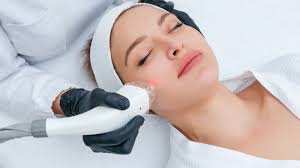Vein health plays an integral role in the body’s circulatory system. Yet, it often goes unnoticed until issues arise. Taking steps to care for your veins can improve blood flow and reduce the risk of future problems. Understanding the role of veins, common conditions affecting them, and ways to maintain healthy veins can help you be proactive in vein care and overall health.
What Are Veins?
Veins are blood vessels that carry deoxygenated blood back to the heart. They are part of a complex circulatory system, working alongside arteries and capillaries. While arteries transport oxygen-rich blood to the body, veins return blood for reoxygenation.
Unlike arteries, veins have thinner walls and contain valves. These valves prevent the backflow of blood and aid in upward movement, especially in the legs. This process is supported by muscle contractions, which help push blood against gravity.
Different types of veins exist to serve specific purposes. Deep veins lie within the muscles, while superficial veins are closer to the surface of the skin. Both types work together to maintain proper blood circulation.
What Are Some Conditions That Affect Them?
Vein conditions occur when blood flow is disrupted or when the walls or valves of veins become damaged. Many of these issues develop gradually, often going unnoticed until symptoms become more pronounced. Factors that increase the risk of vein conditions include prolonged sitting or standing, being overweight, a family history of vein problems, and improper vein care.
Varicose veins are one of the most common vein-related problems. They are caused by blood pooling in superficial veins. This leads to swollen, twisted, or discolored veins that can cause aching or a heavy sensation in the legs. Chronic venous insufficiency (CVI) is another condition where veins struggle to return blood to the heart, resulting in symptoms like swelling, skin changes, or ulcers around the ankles.
Deep vein thrombosis (DVT) occurs when blood clots form in deep veins, often in the legs. If left untreated, it can result in life-threatening complications such as a pulmonary embolism. Early recognition of symptoms and awareness of risk factors aid in proper management. Taking preventive measures can reduce the chances of serious health issues.
What Is Proper Vein Care?
Promoting good circulation is key to taking care of your veins. Regular physical activity helps keep blood flowing effectively, especially for those who sit or stand for long periods. Maintaining a healthy weight can also reduce strain on your veins, particularly in the legs, while a balanced diet supports overall vein health.
Simple lifestyle changes can further improve vein health over time. Compression garments offer additional support for those with certain vein conditions and can help alleviate discomfort. Staying hydrated and moving regularly, especially during long flights or periods of immobility, also contributes to healthier veins.
If symptoms of vein issues arise, consulting a medical professional is essential. They can provide guidance on managing your condition and recommend treatments or lifestyle adjustments tailored to your needs. By taking proactive steps, you can support vein health and improve overall well-being.
Start Maintaining Your Vein Health Today
Your veins play a fundamental role in circulating blood throughout your body. You can support your overall vascular health by understanding their functions, recognizing common conditions, and taking preventative steps. For those at risk, even small adjustments to daily routines can make a lasting difference. Take the first step toward healthier veins by consulting with a healthcare provider or exploring lifestyle adjustments today.

